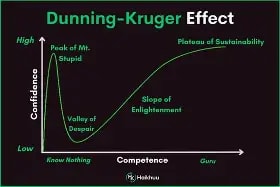TimothyK
TimothyK has not written any posts yet.

1: There's 2 differences I see; I'd categorize it more as 'collecting' than 'monitoring,' and despite the many arms of the NSA, I'd bet the CCP is far worse. A way to measure this is network latency: traffic leaving China is noticeably slower, due to the Great Firewall and the amount of filtering CCP agencies do to all data. Traffic leaving the US encounters 0 or minimal latency; so if it's being monitored, it's not real-time. I actually have worked with a person who had access to the NSA database during it's pre-Snowden days. According to him, there was far more data being collected then was being used, for legal reasons and... (read more)
I hold several different beliefs, and am curious as to what motivates your above statements:
1: Why do you believe that American spy agencies collect Intel or perform Ops using commercial software to a similar level as the CCP? The level of governmental power is extremely different, even if you believe the governmental 'morals' are equal.
2: I've always heard that using servers always comes with the risk of data being ready by whichever government owns the data center. Do you believe that to not be the case? Or are you simply of the belief that every government has access to the data?
3: I see it as 'rational' to switch to Teams for your math sessions only in the same sense that using a VPN for legitimate web browsing is rational. By obfuscating your data, you are making it harder for potentially malicious actors to make and refine algorithms for mass-population manipulation. But that's a whole massive topic by itself, probably not best to get into it here.
Excellent article, really helped put a lot of the 'fear-mongering' news articles in line. I still think organizations should avoid using Zoom if there are other alternatives easily available, but to be fair I havn't done any feature comparisons.
There was another moderately serious bug discovered late March, patched April 2nd.
Is this topic (learning Econ creates AI forecasting blindspots) perhaps a narrow view of a larger problem; some sort of dunning-Kruger "peak of mt stupid"; where econ classes touch enough on AI forecasting that students gain overconfidence?
I'd predict that any curriculum that encompasses some sort of AI forecasting, but which does not have it as a primary focus, ends up with the same forecasting blindspots/problems. As an anecdote, I've seen lots of youtube computer coders use their authority as excellent human programmers to overconfidently state that their job is totally secure and their knowledge of deep programming practices leads them to believe that they can treat AI-powered-coding as a paradigm shift only on the scale of a new IDE or code library.

It's interesting to see the specific breakdown of how it happens to Econ , if anyone has relevent examples for other fields (Law maybe?) I'd be curious to see if they also fall prey to the same problems.